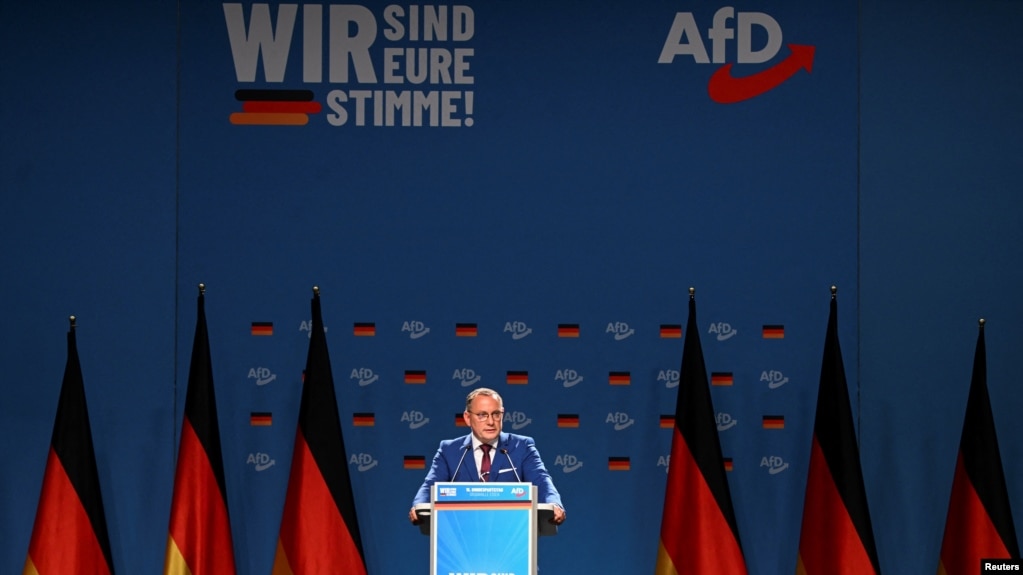
‘Divine Power’ Versus ‘The Bully’: US, India Join Hands To Prevent China From Imposing Its ‘Puppet’ Over Tibet – OpEd
The timing of the US ‘Resolve Tibet Act’ Bill holds significance not only for the Dalai Lama and the people of Tibet but also for India, which has been suffering from China’s bullying for over 70 years because of China’s illegal and colonial presence in Tibet.
Tibet’s exiled leader and the world’s most sought after spiritual personality, His Holiness the 14th Dalai Lama of Tibet, Buddhist monk Tenzin Gyatso, is one of the most gentle, charming, kind and compassionate human beings that walk the planet. I had the good fortune to meet the Dalai Lama, for the first time in 2007, in one of the remotest states of India that borders Bangladesh. With eyes that shine from behind his iconic spectacles, to the yellow-maroon robe that he dons, the man carries the most disarming smile that can completely bowl anyone over.
The 89-year old octogenarian monk was awarded the Nobel Peace Prize in 1989, in recognition of his non-violent campaign to end China’s domination of Tibet, his homeland. The peaceful monk has set an example for the world by sustaining a campaign for the last seven decades to advocate for peaceful solutions based upon tolerance and mutual respect.
I was meeting him for a television interview and before we formally started, I told him that in the true Indian spirit of accepting someone as a Guru (teacher), we touch their feet and seek their blessings. To my utter surprise as I reached out to touch his feet, he got up and bent down and gave me a hug, looked into my eyes and said “I’m a simple monk. Call all your team members and let me give them all a big hug”. I stood there in deep admiration of the man as he kept speaking while he called out to each one of our crew members and hugged them, getting photographs clicked,while words of wisdom continued to flow from his lips. There was a timelessness about those ten minutes which I have never forgotten.
A man on whom rests the fate of a nation in exile… A man who is himself in exile thousands of miles away from his homeland… A man who has been fighting for several decades for a cause that has filled up his entire existence…. A man who can infect anyone with that miraculous smile ..
Yes, the Dalai Lama stepped down in 2011 as the political leader of the Tibetan government-in-exile, which Beijing does not recognise and views as a violation of China’s constitution. And yet, China continues to fume at any interaction that the Dalai Lama has with political personalities or even officials of other countries. They keep an eagle’s eye on his activities calling him “a dangerous separatist”.
Currently, this ‘Divine Power’ has China infuriated ! The Chinese are having sleepless nights as US lawmakers are pressing President Joe Biden to sign the bill that will push China to secure a negotiated and peaceful agreement on Tibet. The ‘Promoting a Resolution to the Tibet-China Dispute Act’, also known as the ‘Resolve Tibet Act’, recently passed the House of Representatives 391-26 and now awaits President Joe Biden for a signature to become law.
China’s restiveness began on June 19, 2024 when a group of US lawmakers met the Dalai Lama and said they would not allow China to influence the choice of his successor. Political analysts say that while so far Washington recognises Tibet as a part of China, the new bill reverses that position.
Beijing, on its part, has rejected the Act, saying Tibet is part of China and brooks no interference from external forces. China’s foreign ministry has urged President Biden not to sign the ‘bipartisan’ Bill, reiterating that Tibet’s affairs are China’s domestic matters and warning against external interference.
What exactly is this Act which has set the cat among the pigeons?
On 12th of June, the US House of Representatives passed the ‘Resolve Tibet Act’ which for the first time clearly stated Washington’s position on Tibet not constituting ‘a part of China since ancient times’. The Act also called for the dispute between Tibet and China to be ‘resolved in accordance with international law, including the UN Charter, by peaceful means, through dialogue, without pre-conditions’ while enhancing bipartisan US support to the Tibetan issue. The Act can be termed ‘historic’ in the sense that the wording clearly posits Tibet and China as two separate entities locked in a long-standing international dispute instead of the former being a part of the latter’s territory and hence the dispute being ‘internal.’ Also noteworthy is the fact that the Act stipulates the US government to counter Beijing’s disinformation of Chinese historical claims over the Tibetan plateau including not just the current Tibet Autonomous Region but also the provinces of Sichuan, Qinghai, Gansu and Yunnan.
Beijing is further intrigued and infuriated as the Dalai Lama arrived in New York last Sunday, ahead of medical treatment for his knees and was greeted by thousands of cheering supporters. This marked his first visit to the country since 2017.
Interestingly, Dalai Lama’s US visit comes just days after a group of lawmakers including former US House Speaker Representative Nancy Pelosi met him at his exile home in Dharamshala, Himachal Pradesh, India. During the meeting, the American delegation assured the Tibetan leader that the US would not allow China to influence the choice of his successor. Pelosi, during her visit to Dharamsala, criticized Chinese President Xi Jinping and expressed support for the Dalai Lama and the Tibetan cause. This visit coincided with the US Congress passing the Act, which urges China to resume negotiations with Tibetan leaders. It is also well known that some of these lawmakers are also trying to push Beijing to restart talks with Tibetan leaders, which have been stalled since 2010.
In a bid to further tantalize China, Indian Prime Minister Narendra Modi met the seven-member US delegation and took stock of their visit to Dharamshala. Modi reiterated his commitment to strengthening bilateral relations for global benefit, recalling his State Visit to the US last year. He asserted that India recognises the Dalai Lama as an “honored guest” and a “religious leader” with a significant following.
Beijing, however, views the Dalai Lama as a political figure engaged in anti-China separatist activities. The Dalai Lama, regarded as the supreme Tibetan spiritual leader, fled to India in 1959 following a failed revolt against Chinese rule. Based in Dharamsala, his advanced age has raised concerns about the selection of his successor, a potential flashpoint between Beijing and the exiled Tibetan community.
Veteran journalist, Tibetologist and Chairman, Centre for Himalayan Asia Studies & Engagement Dr Vijay Kranti says that the sequence of events during which the seven-member US Congressional delegation, led by Republican Michael McCaul, met the Dalai Lama in Dharamshala, followed it up with a meeting with PM Modi in New Delhi, greeted Modi on his historic third consecutive term as PM and praised the fairness of India’s recent elections … “All this shows that the timing of the visit, the composition of this American delegation and the actual content of these US Bills hold big significance not only for the Dalai Lama and the people of Tibet but also for India, which has been suffering from China’s bullying for over 70 years because of China’s illegal and colonial presence in Tibet.”
Dr Kranti, who has been extremely vocal on the Tibet issue for the last three decades and is considered an authority on the subject, said that Tibet used to play as a ‘safety buffer’ between India and China for millennia. Interestingly, the new American laws say everything formally and clearly, which New Delhi wanted to tell Beijing but never had the courage to say in plain words. “It is high time New Delhi grabs this as a God-sent opportunity and joins the proposed ‘International Diplomatic Coalition’. Rather, India can also play an important role in expanding such a coalition to a dozen countries in South Asia and Southeast Asia that are suffering because of China’s “water bullying” on the strength of controlling Tibetan rivers.”
It is a matter of record that a dozen countries in south and southeast Asia, fed by Tibetan rivers since time immemorial, are now feeling the fear of perpetual droughts because of over-exploitation by China. And countries like India and Bangladesh are facing the danger of being bombed with manipulated floods by China from across the Tibetan borders.
Not that India and China have ever enjoyed a cordial relationship, but off late there have been other reasons for India to be upset. Just before the recent general elections, there were reports from the Virginia-based Microsoft Threat Analysis Centre (MTAC) highlighting China’s attempts to use AI-generated content to influence elections in various countries, including India, the US, and South Korea. Similar tactics were reportedly tested during Taiwan’s presidential elections. The Modi government has not taken kindly to this bid by China to manipulate elections in favor of the Congress party.
Similarly, in the US, China is using fake social media accounts to poll voters on what divides them most so as to sow division and possibly influence the outcome of the US presidential election in its favor. China has also increased its use of AI-generated content to further its goals around the world. North Korea has increased its cryptocurrency heists and supply chain attacks to fund and further its military goals and intelligence collection. It has also begun to use AI to make its operations more effective and efficient.
Among the MTAC – “Same targets, new playbooks : East Asia threat actors employ unique methods”, key findings confirmed that deceptive social media accounts by Chinese Communist Party-affiliated actors have started to pose contentious questions on controversial US domestic issues to better understand the key issues that divide the American voters. This quite obviously was done to gather intelligence and precision on key voting demographics ahead of their presidential election. It is not difficult to imagine how the US would have reacted to these findings indicative of the surreptitious and mischievous role that China is playing.
Not only this, fake social media accounts also made a bid to create deep mistrust in the minds of the US voters by accusing the US administration of purposefully poisoning other countries’ water supplies to maintain “water hegemony”. This was part of a wider multilingual campaign, principally focused on Japan and its government’s decision to dispose of treated radioactive wastewater into the Pacific Ocean. The campaign called ‘Storm-1376’ tried to cast doubts on the International Atomic Energy Agency’s (IAEA) scientific assessment that the disposal was safe.
Having borne the brunt of these fake social media campaigns by Chinese organizations, both the US and India have decided to teach China a lesson. India’s Foreign Minister S Jaishankar is already on record stating that India will not let China dictate the play’.
“Previous Indian governments have even put Chinese interests ahead of our own,” Jaishankar said. “I cannot, in the name of an open economy, open up my national security to work with a country which is laying claim to my territory. Both our economic and national security are at stake”.
In his article in The Organiser, Dr Kranti quotes a Tibetan activist and renowned Tibetan intellectual, Tenzin Tsundu, who summed up the significance of this US bill and the visit of the US delegation, saying, “This is the first time in the history of the Tibetan struggle for freedom that any country has come out openly and formally in support of Tibet with clear assertions that Tibet is an occupied country and that Tibet has never been a part of China.
More than anything else, it is the actual text of all these bills of 2002, 2019, and 2024, passed by the US Congress, which reflect the real spirit of American support for Tibet. In short, at least seven major assertions and points underlined in these bills pointedly challenge and blast every single claim and narrative of Xi Jinping on Tibet. Put together, these American assertions on Tibet and China amount to rejecting Xi’s most shouted idea of the ‘One China Policy’. These points also reflect the emergence of an unambiguous American approach towards China.
Photo Tibetan prayer wheels.

Manoranjana Gupta is a Journalist, TV opinion leader, and a Special Advisor for GDKP in India, at the Center for Digital Future, Annenberg School of Communication and Journalism under the University of Southern California.










